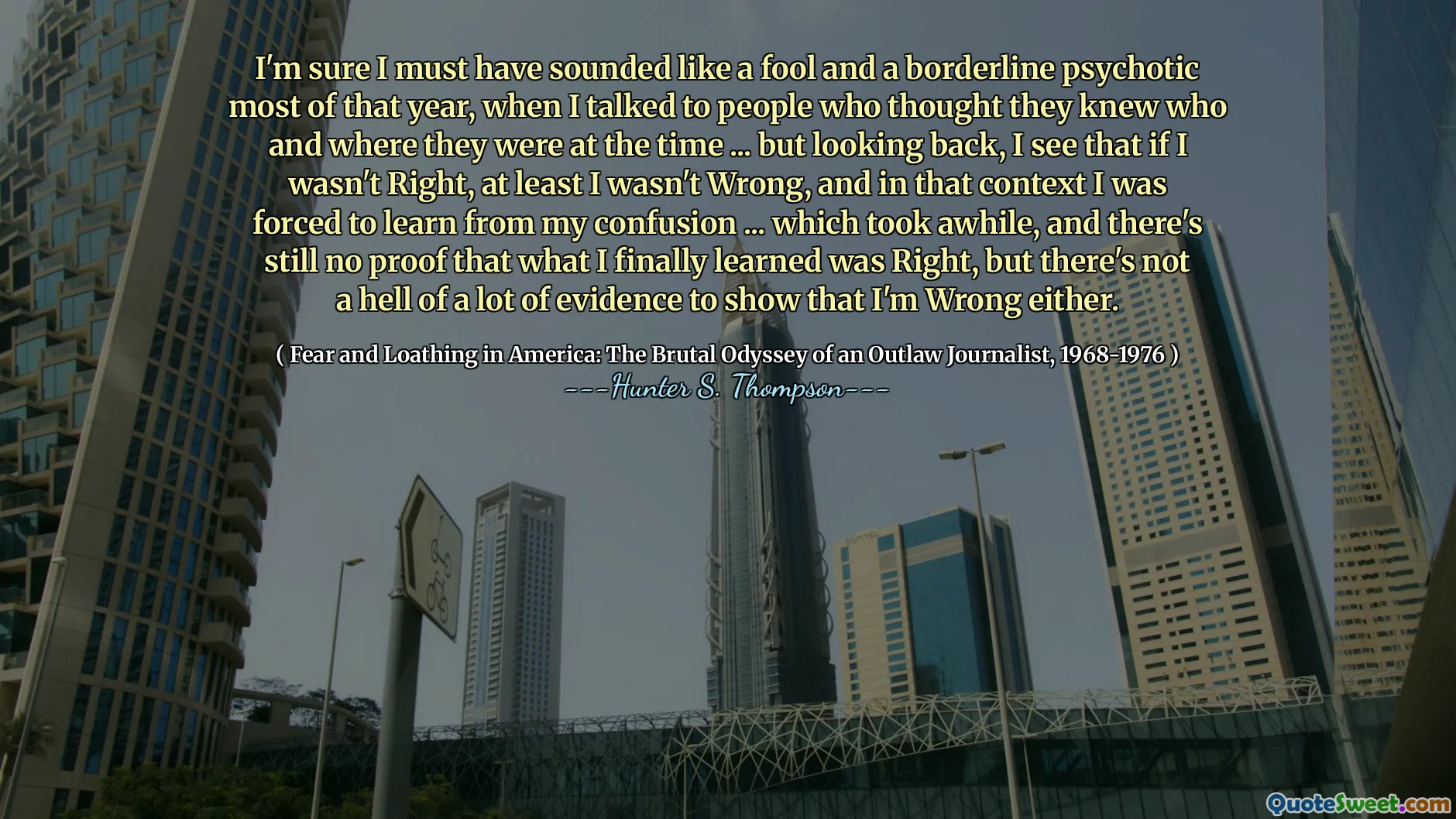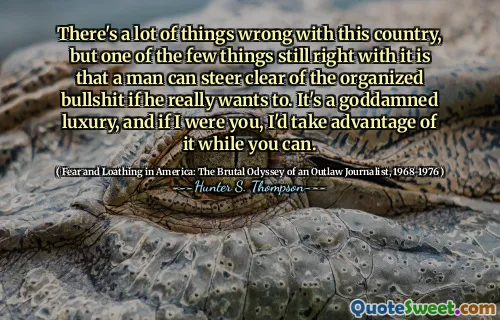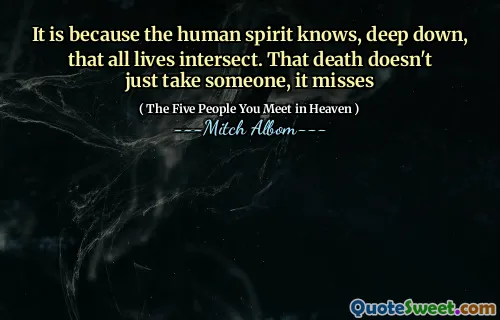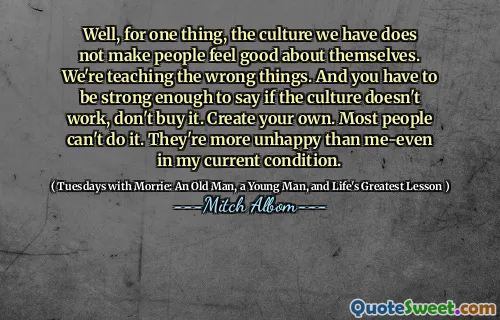
I'm sure I must have sounded like a fool and a borderline psychotic most of that year, when I talked to people who thought they knew who and where they were at the time ... but looking back, I see that if I wasn't Right, at least I wasn't Wrong, and in that context I was forced to learn from my confusion ... which took awhile, and there's still no proof that what I finally learned was Right, but there's not a hell of a lot of evidence to show that I'm Wrong either.
(I'm sure I must have sounded like a fool and a borderline psychotic most of that year, when I talked to people who thought they knew who and where they were at the time ... but looking back, I see that if I wasn't Right, at least I wasn't Wrong, and in that context I was forced to learn from my confusion ... which took awhile, and there's still no proof that what I finally learned was Right, but there's not a hell of a lot of evidence to show that I'm Wrong either.)
Dalam refleksi ini, penulis, Hunter S. Thompson, mengaku merasa bodoh dan hampir tidak stabil selama tahun yang penuh gejolak dalam hidupnya. Dia menavigasi percakapan dengan orang lain yang tampaknya yakin tentang identitas dan lokasi mereka sendiri, yang membuat kebingungannya lebih jelas. Namun, ia mengakui bahwa kebingungannya tidak sepenuhnya salah arah; Itu memaksanya untuk belajar dan tumbuh, bahkan jika pelajaran membutuhkan waktu untuk diproses.
Thompson mengakui ambiguitas wawasannya, karena tidak ada bukti pasti bahwa apa yang akhirnya dia pelajari adalah benar. Tetap saja, dia menegaskan bahwa ada juga sedikit bukti yang menunjukkan bahwa dia sepenuhnya salah. Pernyataan ini menyoroti kompleksitas pemahaman pribadi dan perjalanan penemuan diri yang berkelanjutan di tengah ketidakpastian.







